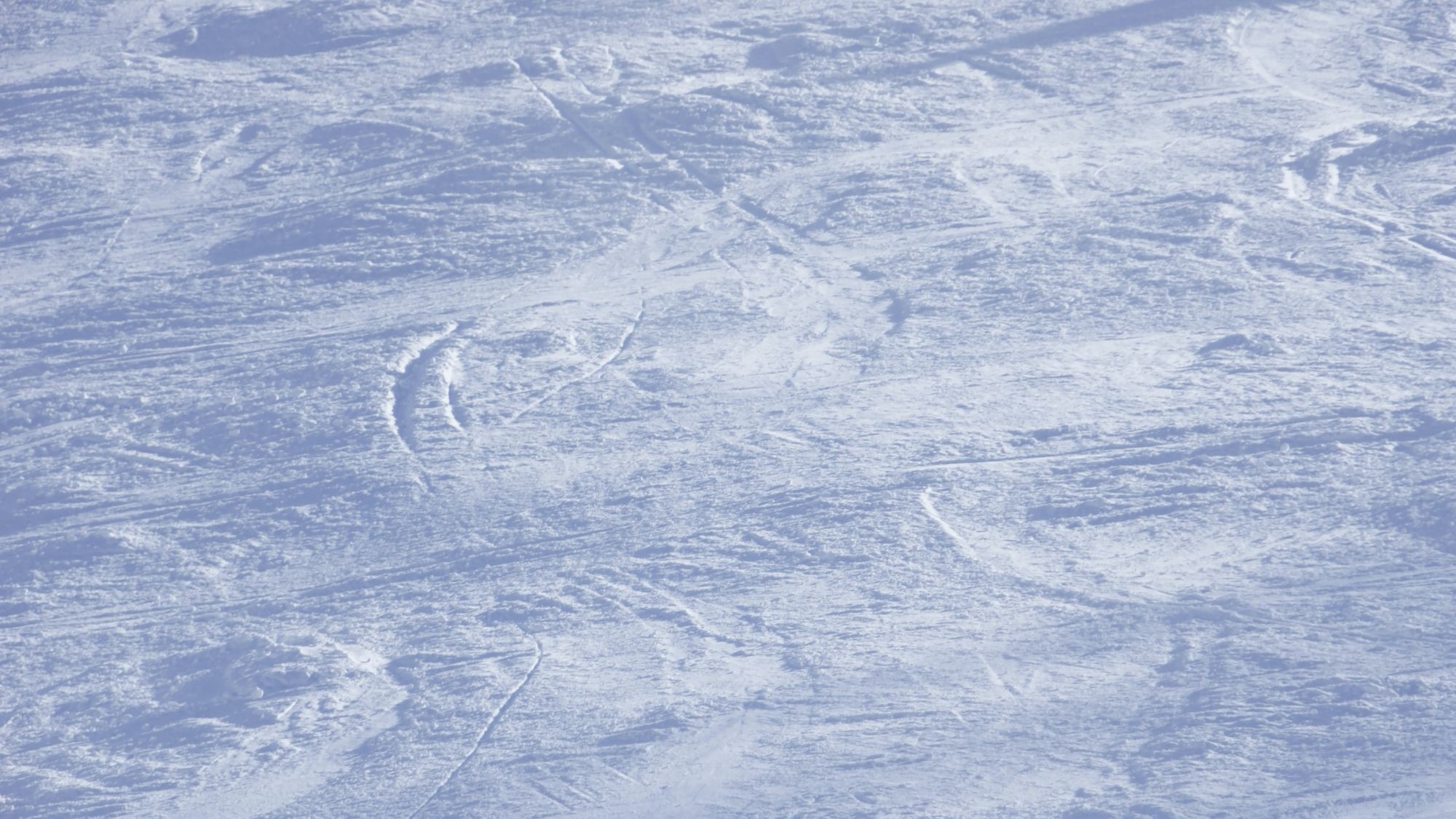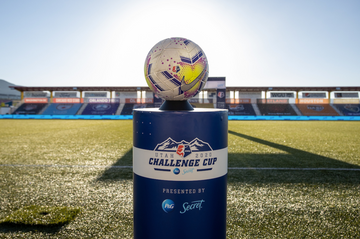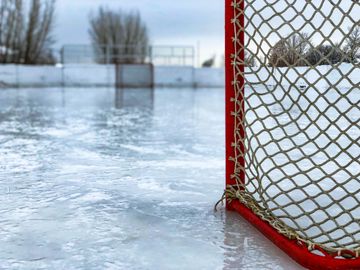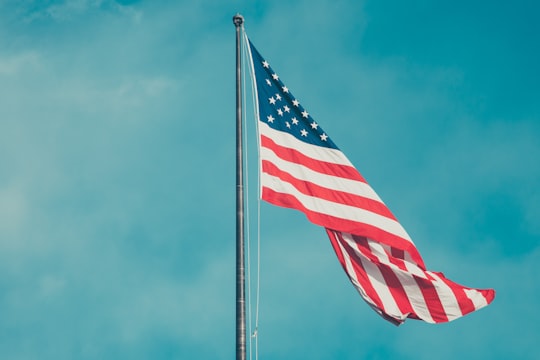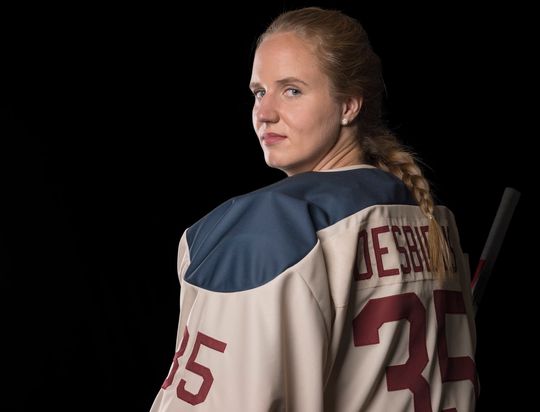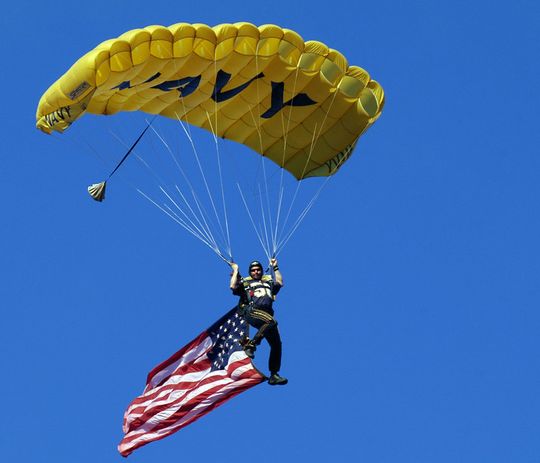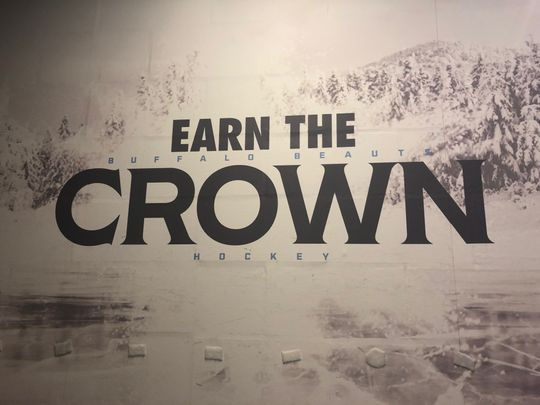It has been more than three days since Barstool Sports CEO Erika Nardini posted a video targeting NWHL fans, reporters, and staff members who expressed that they did not want Barstool or Nardini to be involved with the NWHL. And it has been two days since Barstool's founder David Portnoy posted a video where he expressed that Metropolitan Riveters rookie Saroya Tinker, who is Black, "should be jailed" for calling Barstool a proponent of white supremacist and racist content. Last night, Portnoy posted an additional video targeting harassment at a well-known NWHL reporter for publishing articles that are critical of Barstool.
While NWHL commissioner Ty Tumminia released a statement on Tuesday and, later that day, briefly answered direct questions from reporters about Barstool during a media availability, there has been no public condemnation of Barstool's actions towards Tinker or NWHL communications staff member Alyssa Turner. Statements by the NWHL and the NWHL Players Association have focused on having "conversations" and "internally supporting" their athletes.
This is bigger than hockey, this has sparked days of conversation, mediation, and reflection. Now more than ever the NWHLPA is focused internally on supporting its athletes. We are proud to work alongside the @NWHL and stand firmly with our athletes.
— NWHLPA (@nwhlpa) January 27, 2021
“In this world of social media, I’m concerned about the impact of the video and the aftermath of it on members of the NWHL family. Together, we will do everything we can to work through it with open communication and transparency."
— NWHL (@NWHL) January 26, 2021
When the NWHL publicly tweeted in support of journalist Marisa Ingemi last night, the replies quickly devolved into harassment and mockery of Marisa's work, the NWHL, and women's hockey in general, and the league subsequently deleted the tweet.
Meanwhile, many women's hockey players have been engaging on social media in support of Portnoy's videos, which mock the NWHL and claim that Barstool and Erika Nardini do more for women's hockey than independent reporters who have regularly covered the league since its inception. These players are generally promoting the idea that Barstool's involvement and investment in women's hockey would be a good thing, and a thing that they would support. The scope of women's hockey players supporting Barstool Sports, Nardini, and Portnoy's statements about the NWHL is quite vast, encompassing Americans, Canadians, current and former PWHPA and NWHL players, NCAA athletes, and even retired players. NWHL staff members have also been involved. Most of them are white women.
Barstool additionally created a Twitter account for a league that does not exist, called the "Barstool Women's Hockey League", which has been followed by many women's players since its establishment.
Amid this clear cultural divide in her league, NWHL Commissioner Ty Tumminia's responses have been tepid at best and the league has limited its explicit comment on the Barstool situation to answering direct questions in low-profile media availabilities over Zoom with established NWHL reporters. It has been reported that the Boston Pride and the Toronto Six have "no Barstool" social media policies on their teams (though, if you are willing to check players' actual, public social accounts, that may be a dubious claim, or at least not really enforced), and that the Riveters are handling the matter internally.
But during her media availability on Tuesday night, Ty Tumminia was asked directly by a reporter what accountability that players would face for engaging with Barstool online and encouraging targeted harassment of NWHL fans, media members, and players, and what support systems were in place for Saroya Tinker during this time. Tumminia said:
Obviously my full support as the commissioner of this league for Ms. Tinker and we'll support her to any extent. But I will also support every single one of our athletes and our staff and our entire community that support the NWHL going forward. It's just unfortunate what had happened, and [I felt] very sad that it was the case... Based on conversations I have had today, with multiple players and staff, I hope we're headed in the right direction where our focus will now turn back to where the bubble is, and how we're having such great fun here with the players and the environment that we're in.
This statement is wildly equivocal, and while she later said in conference that while under her commission the league would not do business with Barstool because it is contrary to her values, this does absolutely nothing to suggest that the league is truly engaging internally to hold players accountable for their treatment of Tinker: "I don't find that association being healthy [...] to the objectives that we're trying to do." What Tumminia projects in this press conference is a league that wants to sweep the racist abuse of Saroya Tinker (perpetrated by Barstool and encouraged by her teammates, colleagues, and peers) under the rug and move on.
There's no doubt that the NWHL is in an unfortunate position here – speaking out against Barstool puts a target on anyone's back. It's clear from the social media activity over the last few days that speaking out against Barstool could potentially alienate many current or prospective players in the league. It's also entirely possible that a strong, clear stance against Barstool could alienate potential investors, due to the company's popularity and recent forays into the sports betting business.
But the target is already there. The NWHL can no longer hope that this flies under the radar. The incident with Barstool has created a clear personnel issue that must be swiftly addressed if they hope to continue to be able to have a league that includes players like Saroya Tinker – young athletes of color who have a commitment to making the sport of hockey inclusive. By not speaking out unequivocally in support of Tinker and in condemnation of Barstool's racist, misogynistic, and at times violent rhetoric, the NWHL and Tumminia ensure that the target remains exactly where it is, and that at the center of it is their young, Black rookie. From the outside looking in, the silence speaks volumes. How can fans and journalists continue to support and cover the Riveters and the NWHL without knowing that players like Saroya Tinker are being supported?
Whether they like it or not, the NWHL is leaving open the question as to which players and which fans they value by remaining cagey and keeping these conversations internal. They are also allowing their relationships with reporters who have covered the league, and women's hockey more broadly, to rapidly deteriorate at a time when the league has a high profile, and is set to have an even higher one, given the Isobel Cup Playoffs scheduled to be broadcast for the first time on NBC Sports. (To make matters worse, the Metropolitan Riveters have had to pull out of the Lake Placid season due to COVID-19 infections, and games have been postponed for January 28.)
The crisis the NWHL faces in this moment goes far beyond conversations. In fact, conversations often just lead to more "conversations" – there's an entire cottage industry of consulting and workshopping and PR campaigns around having conversations about diversity and inclusion. These "conversations", as Alex V Green wrote for Jezebel last July, are more or less obfuscation and diversion. By having a "conversation" and saying that you are "listening and learning", you can avoid or delay making any concrete plans or actions to address the issue materially and in the real world. These "conversations" are buying the NWHL time, but not much of it. Barstool will continue to escalate this situation (presumably until Portnoy and/or Nardini get bored of it) and many fans, reporters, and players will remain in the line of fire. For a league that was so bold as to put "End Racism" patches on their uniforms at the beginning of this season, the NWHL has done very little publicly to deter this behavior.
While Barstool may have pushed the women's hockey community to a tipping point in the last few days with their various incitements, the problem of racism, misogyny, and other forms of bigotry in hockey is not new by any means. It is deeply embedded in the sport's culture, and we have written about it several times over the years here at the Victory Press. The vast amount of predominantly white players from every level of women's hockey flocking to support Barstool and Nardini, rather than Tinker, the Black player who called Barstool out for racism, paints the picture even more clearly, and in more garish tones, than anything we could ever write about it. It is not surprising. And it's really late in the game to begin realizing that this is a problem.
So let's say the NWHL, or PWHPA, or any individual team or women's hockey player wants to move beyond conversation and into action. An action can mean material support or protest via direct action, but it can also be a strong statement of what they intend to follow through with as an organization or as an individual in order to promote diversity and inclusion in the sport. Ideally, it should be both. In the NWHL's case specifically, it should be to explicitly and publicly condemn Portnoy's statements about Saroya Tinker, unequivocally state that they support Tinker, and reiterate that they will not entertain a partnership with Barstool Sports as a company or Erika Nardini individually.
They should also state that players who encouraged harassment of Tinker will face consequences, and develop a transparent plan as to what those consequences will be, with the principles of restorative justice in mind. The NWHL must apologize, profusely, for the amount of time it took to make this statement, and apologize to fans, reporters, broadcasters, and anyone else affected for their passive approach to this problem. They should directly and privately apologize to each person targeted by name or Twitter handle in Portnoy's and Nardini's videos. And they should develop action items for their path forward, which should include anti-racism and unconscious bias training for all players and staff members.
This is the bare minimum, and it won't be enough, but it's a start. By not doing this, or developing their own action plan around actually practicing anti-racism within their league and in the wider women's hockey community, the NWHL is making a choice, and saying that hockey culture, as it stands, is good enough for their purposes, and they will not be part of the change. This isn't going to go away, and while the work never ends, there is never a bad time to start it.
Unfortunately, it's always too late, and the parameters that sports leagues currently operate under are limited by the constraints of capitalism. When you depend on outside investors and broken revenue models, as the current economy of pro sports does, it can be hard to create a sustainable business that exists to create something good rather than to create something profitable for shareholders or owners. Women's sports depends heavily on its fans, its core media, and unfortunately in many cases, the benevolence of wealthy individuals who are interested in a new financial project. This remains the case as the NWHL has focused on obtaining private ownership of its teams, rather than operating them under the league itself. (The Boston Pride, owned by private ownership group Cannon Capital, and the Toronto Six, owned by a Boston-based private ownership group headed by Johanna Neilson Boynton, are the only two privately owned teams.)
The private ownership model doesn't create much incentive to protect the enormously diverse women's hockey fanbase, nor does it encourage the league to go out on a limb against the hulking juggernaut of the Barstool trolling empire. The primary motivation is to make the teams appealing to buyers. It's not necessarily surprising that prior to Nardini's video on Monday, former commissioner Dani Rylan and some current players had playfully endorsed Nardini's interest in buying an NWHL team. The league didn't immediately see, or want to see, how that type of behavior could potentially be harmful to someone like Saroya Tinker and to many of their fans, because it came from a real potential buyer in Erika Nardini.
So, in a quite essential sense, the league's purported business model is at odds with what it might ideally accomplish as an organization that is welcoming and inclusive for fans and players. Even limited by these constraints, though, it is possible to do better, and the path before them to mitigate the damage isn't easy, but it is clear. Barstool has forced their hand, and they can make the choice to begin fixing this. COVID-19 contingencies will likely take up much of the league's time as they continue to test players at the Lake Placid site and determine if the tournament, already some of the most exciting on-ice action in the league's history, can continue. But a short statement supporting Saroya Tinker and making firm action commitments to the work ahead shouldn't take that long to put together.
Of course, the problem isn't just the NWHL; hockey culture (both on the men's and women's side) have incubated the racism propagated by Barstool Sports for generations. Every person in hockey, whether they're a journalist, broadcaster, player, staff member, or fan, who stays silent about this is encouraging it to continue and actively making the sport unsafe and unwelcoming for many people of color. How we act in response to this will determine what hockey's future looks like.
Support Saroya Tinker's scholarship fund through Black Girl Hockey Club here.
(Photo: Boris Misevic/Unsplash)
